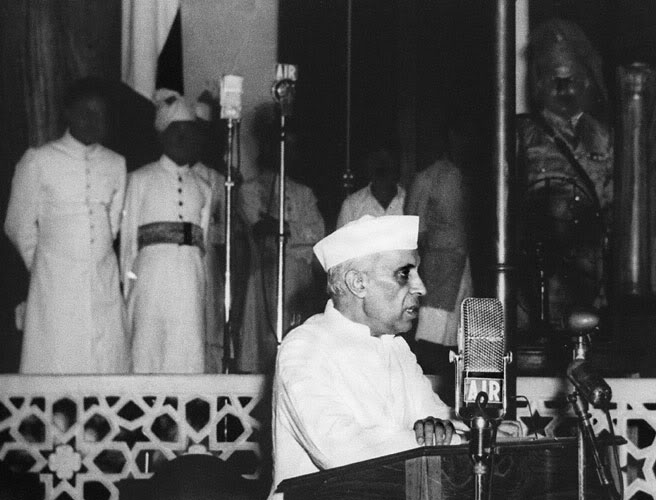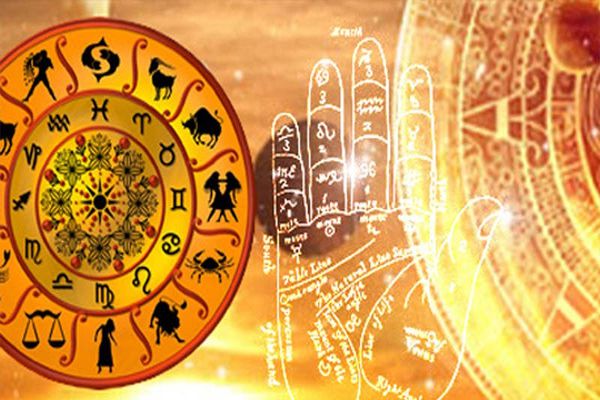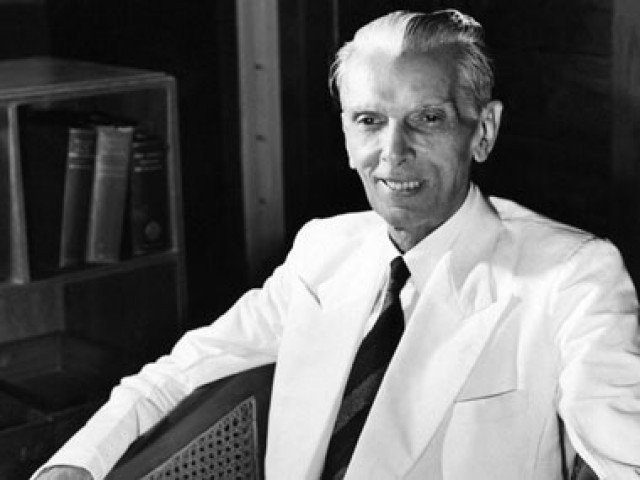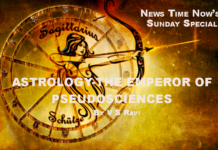
Many have been wondering how people can have blind faith in Ram Rahim. But just look at how even Pandit Nehru succumbed to superstition.

After all the exposure on rapes and murders of self-proclaimed Messenger of God Ram Rahim, many have been wondering how people in modern India can have blind faith in such a rascal. The answer is simple. India was born out of superstition and even Pandit Jawaharlal Nehru had to succumb to superstitious beliefs.
The faith in astrologers and babas still continue to hold sway over India and Ram Rahim is just an example. Despite all the advancement in science and technology, India is still a land of superstitions and mumbo-jumbo.
Now to a little bit of history to prove the point. The Indian Independence Bill was introduced in the British House of Commons on July 4, 1947 and passed within a fortnight. After that, journalists and others asked Lord Mountbatten the crucial question `when.’ He was governing India and given the charge to transfer power.

Mountbatten later claimed that “The date I chose came out of the blue. I chose it in reply to a question. I was determined to show I was master of the whole event. When they asked had we set a date, I knew it had to be soon. I hadn’t worked it out exactly then — I thought it had to be about August or September and I then went out to the 15th August. Why? Because it was the second anniversary of Japan’s surrender.” This is what is quoted in the non-fiction book Freedom at Midnight by Larry Collins and Dominique Lapierre.
On August 15, 1945, Japanese Emperor Hirohito gave a recorded radio address called the Jewel Voice Broadcast in which he announced the surrender of Japan to the Allies. Mountbatten heard the news of Japanese surrender that day sitting in Churchill’s room. Later, as the Supreme Allied Commander of South East Asia Command, he signed the formal Japanese surrender of Singapore on September 4, 1945.
So, for Mountbatten, August 15 was a lucky date. That is why he chose that day.
Little did he realise that he will have to face a huge backlash.
There was a massive uproar from astrologers in India who took the unanimous stand that 15-Aug-1947 was an “unfortunate & unholy” date according to astrological calculations. First, it was a Friday and there were no good muhurthams. Alternative dates were suggested but Lord Mountbatten stood his ground saying he did not believe what the planets and stars had to say.
Astrologers Hardeoji and Suryanarain Vyas of Ujjain knocked at the doors of Babu Rajendra Prasad, who later became the first President of India, and told him that astrologically it was not auspicious and so something had to be done.
Rajendra Prasad reportedly spoke to Nehru, but the latter told him that Lord Mountbatten was adamant on that date.
The clever and calculative astrologers found a solution. They chose the midnight hour between Aug 14 and 15. They reasoned out that the day according to English calendar starts at 12 AM, but according to Hindu calendar, it starts at sunrise.
The astrologers told Nehru that the speech of acknowledgement of transfer of power be done within a 48 minutes auspicious window period called the “Abhijeet Muhurta”.

Abhijit Muhurat is like a joker in a pack of cards — very flexible and can be conveniently used. When people do not find auspicious muhurat for their work, though it is urgent, they depend on this muhurat. When it is inevitable to do something, Abhijit Muhurat acts as a rescuer with all its auspiciousness. This muhurat is auspicious for any type of work and is present every day. A day’s 8th muhurat is called Abhijit Muhurat.
On August 14-15, Abhijit Muhurat fell 24 minutes before and after 12:15 am. To be more precise, between 11:51 pm & 12:39 am. Nehru was told to deliver his speech only within that timeframe. He was also told to announce India’s freedom from the British at exactly 12 AM when August 15 would be born, so that the holy conch (Shanka) could be blown to herald the birth of a new nation at the stroke of midnight hour.
Pandit Jawaharlal Nehru had two faces: he was a strong advocate for promoting science and technology. In fact, he called India’s scientific institutions modern temples of the nation. But he is known to have consulted astrologers privately and condemned them publicly. Very typical of `progressive, secular’ politicians.
Hence, India was born out of superstition and astrological beliefs.
But astrologers later defended the move saying, on hindsight, that it was because of this auspicious timing that India stood united and is a strong and vibrant democracy that has taken big strides in various fields.

To prove their point, they cite the example of Pakistan. Initially Pakistan too considered August 15 as Independence day. In his first address to Pakistan, Jinnah said, “August 15 is the birthday of the independent and sovereign state of Pakistan. It marks the fulfilment of the destiny of the Muslim nation which made great sacrifices in the past few years to have its homeland.”
But from the next year, Pakistan started marking August 14 as its independence day. It might be due to either of the two reasons: because the ceremony for transfer of power in Karachi was held on August 14, 1947 or because August 14, 1947 was the 27th of Ramadan, a very sacred date to the Muslims.
Astrologers say the Pakistan did not choose the right time and that is why the nation had to break up and suffer multiple coups. And it still continues to be in turmoil. In astrological terms, Jinnah got sworn at an inauspicious time. That is why after a military adventure in Kashmir, Jinnah, a sick man, died and the nation went into a tailspin.
India avoided that fate and has functioned as a democracy except the brief period of National Emergency from June 1975 to Jan 1977.
Whether you believe in astrology or not, India was born out of superstition. So long as superstition is ingrained in the psyche of Indians, Ram Rahims would flourish.











































